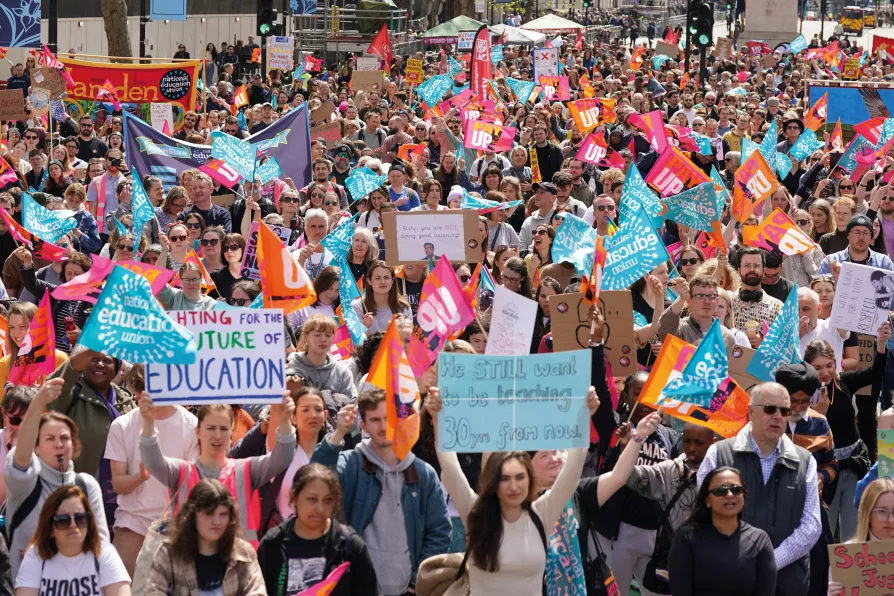CHRISTOPHE DOMEC speaks to CHRIS SMALLS, who helped set up the Amazon Labor Union, on how weak leadership debilitates union activism and dilutes their purpose
It's all kicking off in the classrooms
Teacher ROBERT POOLE reflects on the year past and the year to come, as education staff prepare to fight the government not just for their rights, but for the future and purpose of schooling itself


AS always, there is never a shortage of educational news, but the last year exposed the ineptitude of a government that misplaced nearly £400 million in funding for schools because they forgot there were two new council areas and it turns out that several schools were built with crumbling concrete.
It turns out that cutting funding for the building of new schools has consequences.
Tory austerity has had several other negative results. Unseen, of course, to policy-makers, but obvious to the historical materialists among us. Cheating on exams is up, school absences are up and mental health issues among young people are up.
Similar stories

As the government moves to rein in academy freedoms, former darling of conservative education reform Katharine Birbalsingh cries ‘Marxism.’ Education columnist ROBERT POOLE examines how academisation has failed our children while enriching executives and empowering ideologues at the expense of democratic accountability












